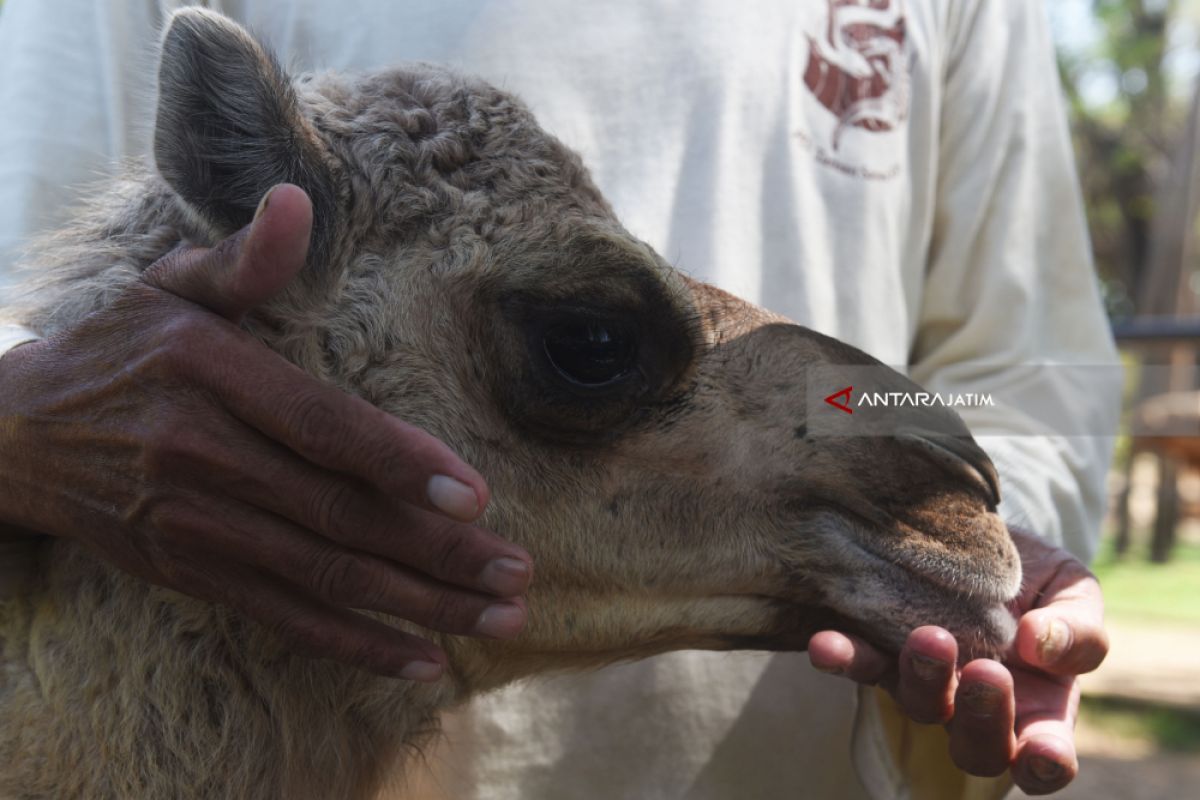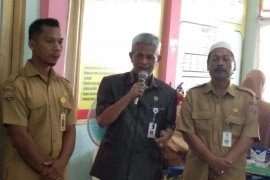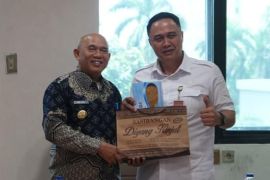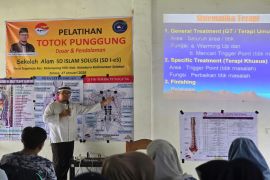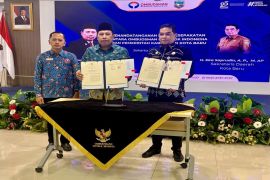Jakarta (ANTARA) - Head of the Health Service Unit for Hajj Pilgrims of the Health Ministry dr Edi Supriyatna MKK in a briefing of hajj officers in Jakarta on Wednesday (24/4/2019). (ANTARA/Hanni Sofia)
The Health Ministry has called on Indonesian hajj pilgrims in Saudi Arabia to avoid direct contact with camels and took selfies close to the animal.
"Avoid direct contact with camels such as took pictures with camels or drink their fresh milk in the farm," head of the ministry's Health Service Unit for Hajj Pilgrims dr Edi Supriyatna MKK said in a briefing of hajj officers here on Wednesday.
Supriyatna who will lead the health service unit of Indonesian Hajj Organizer (PPIH) in Madinah said, direct contact with animals, including camel, would become one risk factor for hajj pilgrims' health.
The call to avoid camels had been echoed in the past few years following the spread of the deadly Middle East Respiratory Syndrome (MERS), firstly identified in Saudi Arabia in 2012.
Saudi's Health Ministry has also called on hajj pilgrims to be cautious over the deadly disease.
The World Health Organization (WHO) in its official website explained that MERS is a respiratory syndrome caused by coronavirus (CoV), a large family of viruses that can cause diseases ranging from the common cold to Severe Acute Respiratory Syndrome (SARS).
Typical MERS symptoms include fever, cough and shortness of breath. Pneumonia is common, but not always present. Gastrointestinal symptoms, including diarrhoea, have also been reported.
Surpiyatna has also called on hajj pilgrims to stay fit by consuming nutritious food, use umbrella during outdoor activities, spray water to face or other exposed body parts, and drink water frequently.
Reporter: Hanni Sofia, Sri Haryati
Editor: Bambang Purwanto


